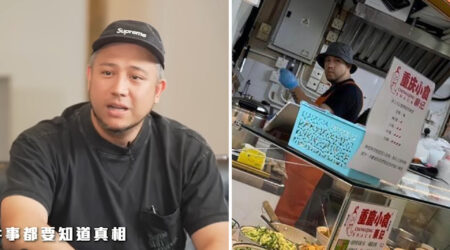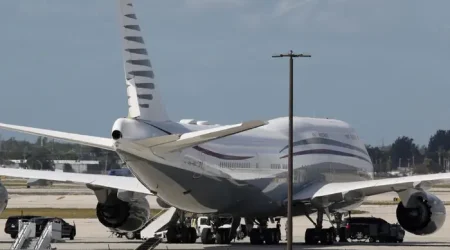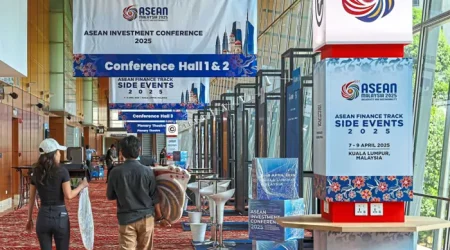Gloved up for fluid tariffs
PETALING JAYA: As the United States considers imposing tariffs on pharmaceutical imports worth US$200bil, Malaysian medical product manufacturers are bracing for the potential impact of US President Donald Trump’s announcement on the local industry.
According to the Health Ministry, Malaysia’s medical device exports to the United States were valued at RM13.69bil (US$3.07bil) in 2024, making up 36.97% of the country’s total medical device exports, which stood at RM37.03bil.
Meanwhile, pharmaceutical exports to the United States were worth RM560mil, or 18.48% of Malaysia’s total pharmaceutical exports, which amounted to RM3.03bil.
Malaysian Medical Device Manufacturers Association (Perantim) president Johari Abu Kasim said the impacts were already felt when Trump announced the 24% reciprocal tariffs against Malaysia earlier this month.
As a knee-jerk reaction to this announcement, there were some cancellation of orders from US-based importers.
Johari said medical grade gloves, catheters and syringes are some key products exported to the United States.
ALSO READ: Govt to proceed with medicine price transparency roll out on May 1, says Armizan
“We also export indirectly through Singapore.
“This accounts for about 23% to 25%,” he said.
Johari acknowledged that the tariff threat has left some exporters jittery as the situation remains fluid and uncertain.
However, he sees a silver lining, noting that the 145% tariff rate on China would make Malaysian products more competitively priced.
Johari said some Perantim members are also looking at the possibility of setting up satellite production plants in the United States so that they can produce there and supply the American domestic market.
As a mitigation measure, medical device manufacturers are also looking for new markets, he said.
“We are working with Matrade to look into new non-traditional markets,” he said.
“It is also time to tap into Asean’s strength and boost intra-Asean trade.
“We are now chairing Asean. I think there are a lot of things we can do.”
Ching Choon Siong, executive director of the Association of Malaysian Medical Industries (AMMI), stated that the reciprocal tariffs will affect price competitiveness, export volume of medical devices to the United States, as well as the profitability of exporters.
“Based on initial survey responses, our members expect the chain effects will lead to price increases globally, thus impacting the cost of goods sold.
“However, they do not foresee any immediate change in export demand and will assess the impact of these tariffs, or any potential reciprocal tariffs, in the long term,” he added.
Pharmaniaga Bhd managing director Zulkifli Jafar said the pharmaceutical company currently does not engage in any direct export activities to the United States.
“Therefore, the recent imposition of tariffs by the US government does not have any immediate or direct impact on our operations.
“However, we remain mindful of the interconnected nature of global trade, where policy changes in one region can influence supply chains worldwide.
“While we do not anticipate any significant impact at this stage, we are closely monitoring the situation to stay ahead of any potential downstream implications that may emerge,” he said.
At present, Pharmaniaga is actively engaging with local and international suppliers to assess the possible risks and to align on contingency plans.
“This ongoing collaboration will enable us to respond swiftly and effectively, with the flexibility needed to adapt if conditions change,” Zulkifli said.
“Our commitment to operational continuity and supply chain resilience remains steadfast and through a proactive and vigilant approach.
“We aim to ensure uninterrupted services to our customers and partners, even as the global landscape continues to evolve,” he added.
During Trump’s first term in office, medical devices and protective gear produced in China, Mexico and Canada were exempted from duties – although reports suggest that they may not receive a reprieve this time around.














Leave a Reply